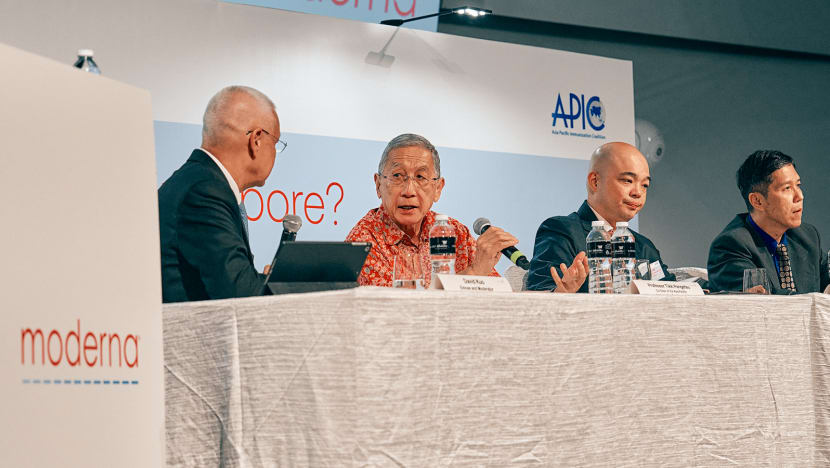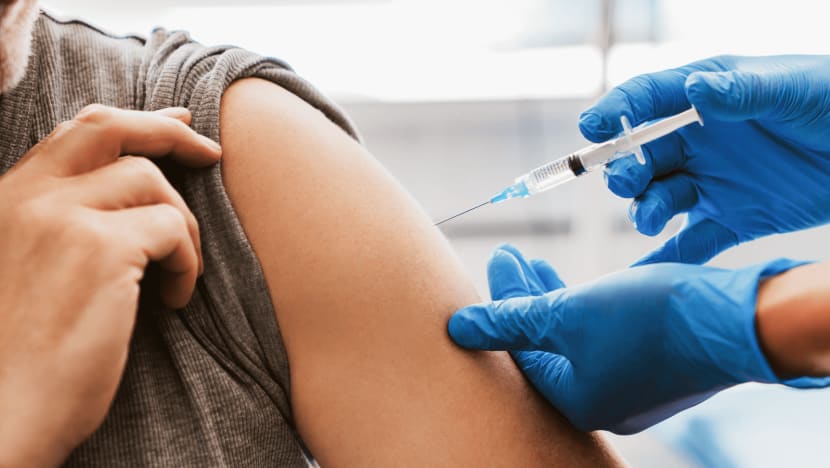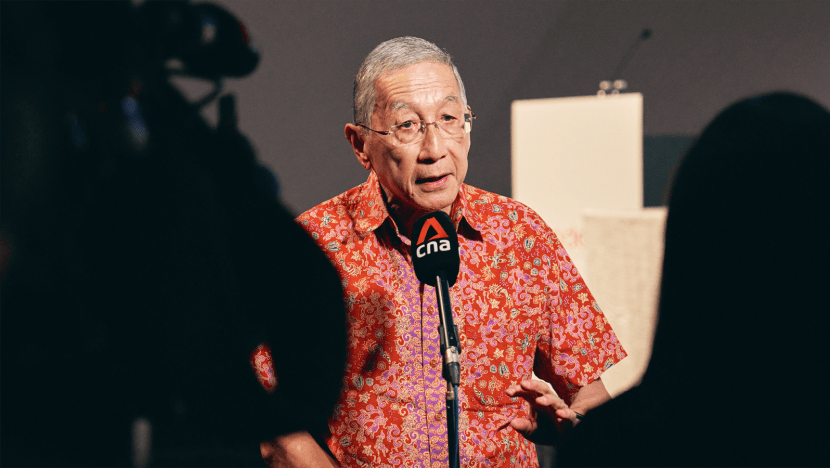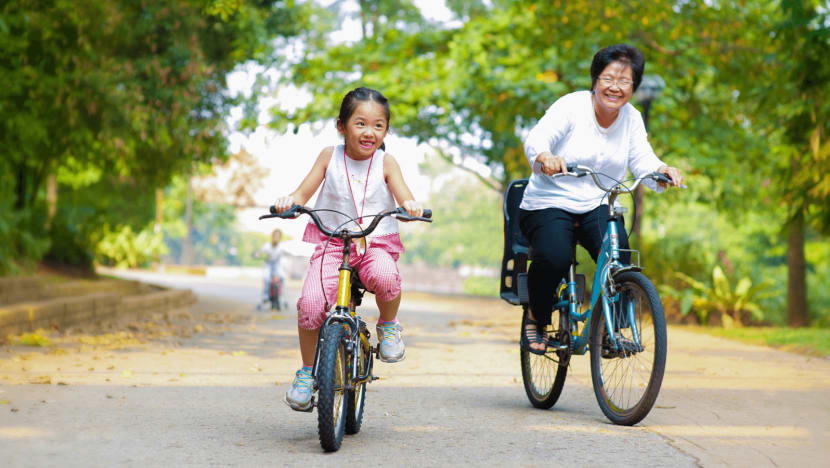From pandemic to endemic: What’s next for COVID-19 in Singapore?
Singapore’s ongoing battle against COVID-19 advances with the approval of updated vaccines.

Key opinion leaders at the 'What’s Next for COVID-19 in Singapore?' panel discussion. Photo: Moderna
Singapore’s success in achieving an initial high vaccination rate has been a critical factor in facilitating the nation’s transition to COVID-19 endemicity. As the country continues to live alongside COVID-19, the rate of COVID-19 vaccinations is on the decline, with fewer individuals receiving their shots.
While the World Health Organization (WHO) announced in May 2023 that COVID-19 is no longer a public health emergency of international concern, Professor Marion Koopmans, a virologist on the WHO panel, cautioned that it is still “critical to communicate that COVID-19 remains a complex public health challenge”.
In a recent update, Health Minister Ong Ye Kung shared that Singapore is grappling with a resurgence of COVID-19 infections, with more people expected to fall sick and be hospitalised. The latest COVID-19 vaccine advisory recommends individuals aged six months and above to receive a one-year additional dose and to remain vigilant about keeping their vaccination status up to date.

In response to the dynamic nature of COVID-19, the Health Sciences Authority (HSA) has granted approval for updated vaccines targeting new variants.
Moreover, the Expert Committee on COVID-19 Vaccination has put forth that seniors and the medically vulnerable are eligible to receive a single additional dose of an updated vaccine five months following their most recent additional shot.
UNCERTAIN VACCINE SENTIMENTS
Even during surges in infections, Singaporeans aren’t as concerned about the disease as they once were. A survey commissioned by Moderna Singapore and the Asia Pacific Immunization Coalition (APIC) revealed that 87 per cent of people believe that COVID-19 poses a medium, low or very low risk to their health.
Conducted by YouGov, the online survey – titled 'What's Next for COVID-19 in Singapore?' – involved 1,110 respondents with diverse backgrounds, including those deemed to be at risk from severe infection, such as seniors and immunocompromised individuals. The survey was also extended to respondents with three specifically analysed medical conditions – diabetes, heart conditions and chronic lung conditions – to glean insights on the perception of COVID-19 as a threat among those who are medically vulnerable.
EXPERTS WEIGH IN ON WORRYING FINDINGS
According to survey findings, around one-third of all respondents no longer see the virus as a threat to their health. Furthermore, 38 per cent of respondents aged over 60 and 31 per cent of those with the three analysed medical conditions did not plan to take additional COVID-19 shots in the future.
This apparent complacency among the medically vulnerable regarding vaccinations has been a source of concern for local experts, who emphasised that those who are elderly, immunocompromised or have chronic medical conditions are more susceptible to severe COVID-19 infections.
Having high vaccination coverage not only reduces the emergence of new variants, it also reduces the chances of the virus spreading. In addition, Dr Ben Ng, a specialist in diabetes mellitus and thyroid disease at the Arden Endocrinology Specialist Clinic, highlighted that COVID-19 vaccines have been proven to be safe and effective.
“Like any approved medicine, there will always be a small proportion of people who have an adverse reaction," he said. "However, with COVID-19 vaccinations, those side effects are usually both mild and short-lived. I would urge people, especially medically vulnerable individuals, to speak to their doctor about their concerns.”

Professor Tikki Pangestu, visiting professor, Yong Loo Lin School of Medicine, National University of Singapore, and co-chair of APIC, said the survey revealed “fascinating but worrying information around people’s thoughts about COVID-19 and vaccines”.
“Singapore has responded well and moved forward from the pandemic. Now that the virus is endemic, we must come together to discuss and agree on how we should act,” he added.
WHEN FALSE BELIEFS COULD IMPACT HEALTH
Although 69 per cent of survey respondents said they were concerned about their loved ones being infected by COVID-19, only 15 per cent of those aged above 60 and 23 per cent of respondents with the three analysed medical conditions felt the virus posed a high or very high risk to their health.
The survey found that this could be due to false beliefs. For example, 44 per cent of respondents felt that a natural recovery from COVID-19 would build immunity more effectively than taking a vaccine.
However, Prof Pangestu pointed out: “Vaccines have been crucial in helping us emerge from the pandemic and they still have a large role to play, especially in protecting the vulnerable from severe infection.”
MOVING FORWARD WITH CLARITY

As Singapore continues to live with COVID-19 as an endemic challenge, it’s vital to recognise that specific groups, particularly seniors and individuals with chronic medical conditions, may still be at risk of severe illness and, in some instances, fatalities.
Ms Evelyn Pang, general manager of Moderna Singapore, said: “We urge the public, especially those in vulnerable groups, to remain vigilant, adhere to official advisory and seek counsel from healthcare experts on how best to protect themselves. As circulating COVID-19 variants continue to evolve, an updated COVID-19 vaccine is essential for optimal protection.”
If you are at risk of severe illness from COVID-19, it is recommended that you take your updated COVID-19 shot. Learn more about how you can help protect yourself and your loved ones.















